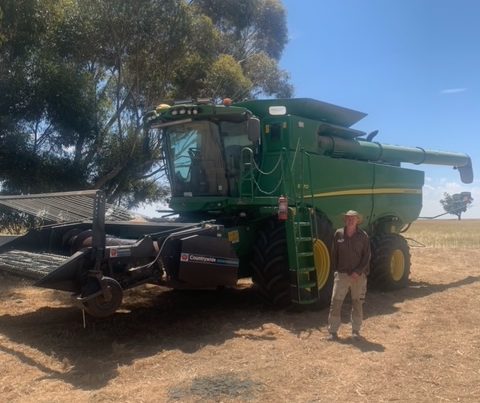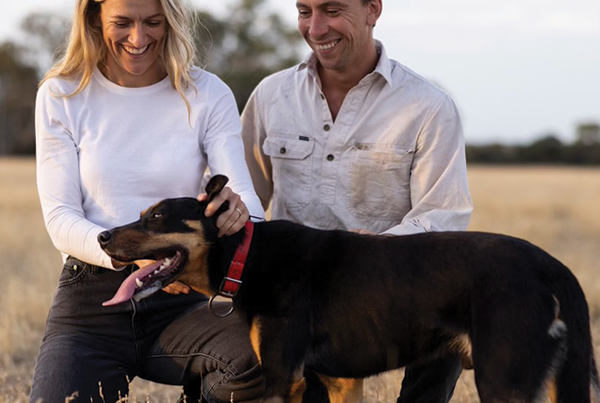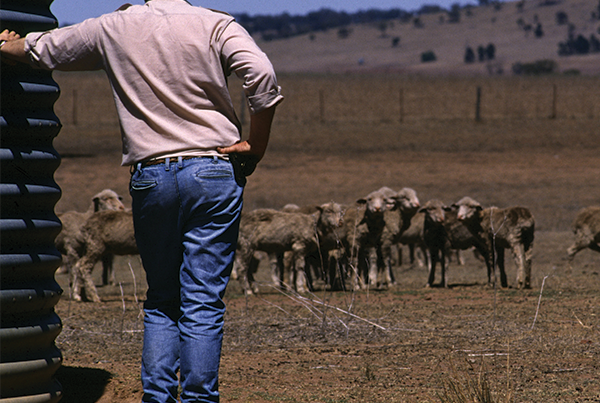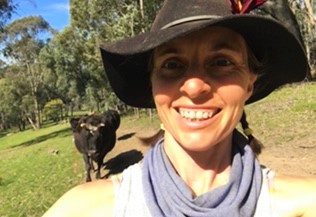
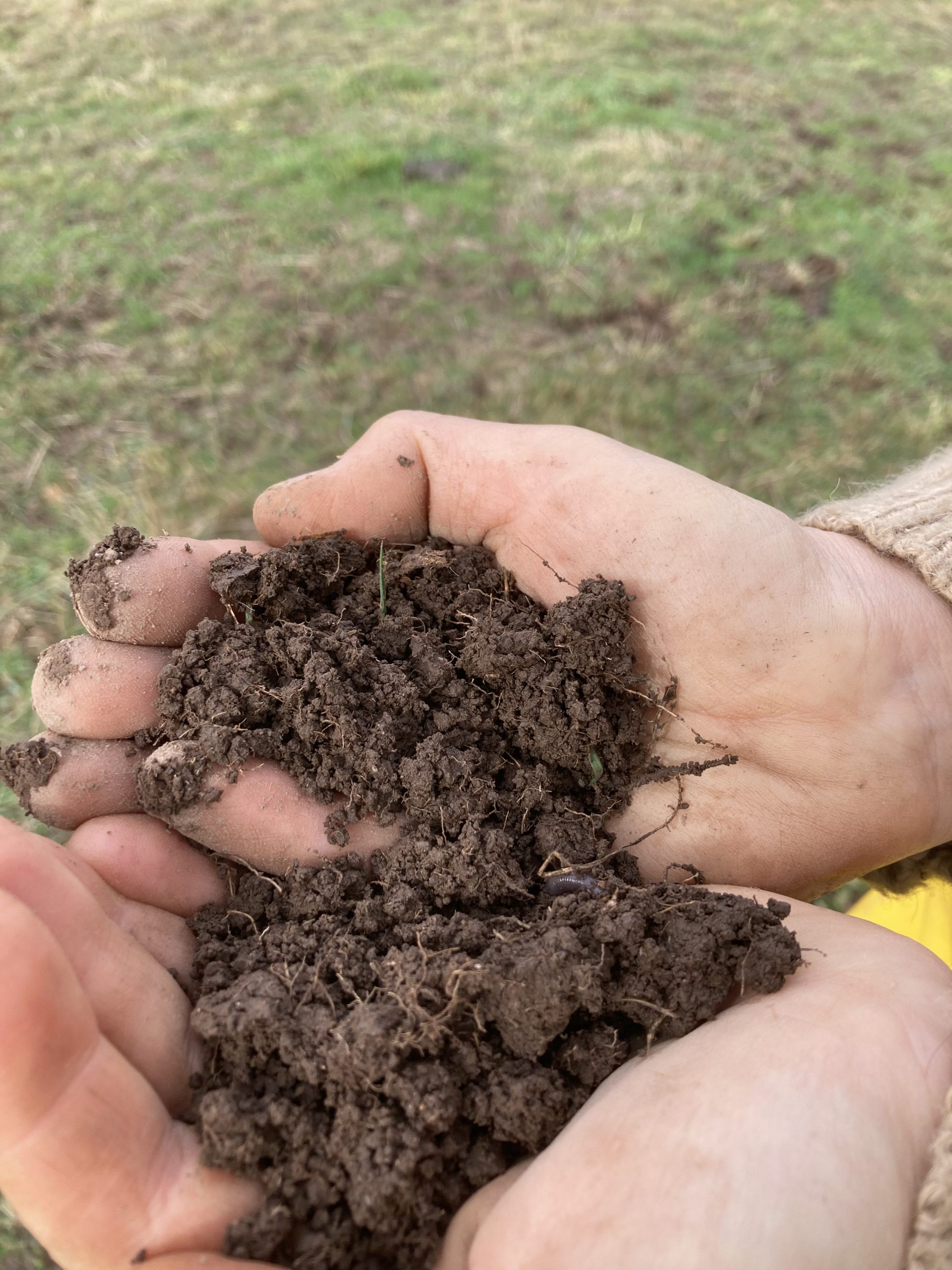
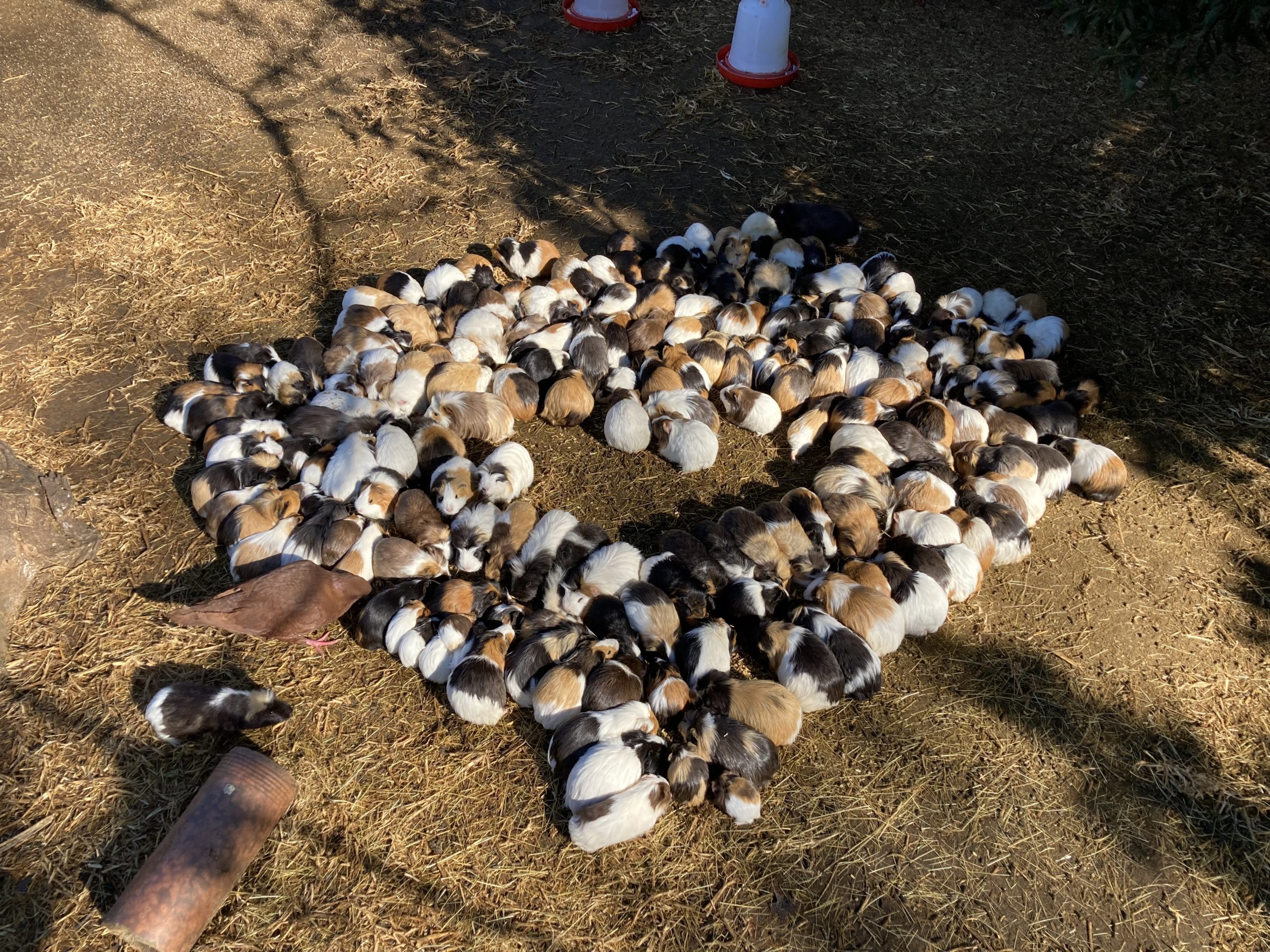
At a glance
Who: Rosie Suter
What: 160 acres plus 100 acre leased, Regenerative, Stacked enterprise
Where: Whitfield in the King Valley, Victoria
Can you tell us about your property?
I live and work alongside my husband Dave, daughter Normandy and Boots the Wonder-Corgi! We care very deeply for our land under the regenerative framework as much as possible and have a wide range of elements such as beef cattle (and one special Jersey), poultry and eggs, goats, pigs, sheep, guinea pigs, compost worms, dung beetles, that all come together to help improve our soil and water health. Our annual rainfall is around 1000mm
What first got you thinking about climate change?
In December 2015, a permanent waterway on our farm turned filthy brown and then for the first time on record, stopped flowing overnight. The flow resumed a few days later, then began to stop and start regularly over Summer, with no correlation to rainfall patterns. The cause was found to be from an irrigator with an existing license originally issued in 1995 for 60 million litres. The entitlement had been granted based on a rule of thumb of 3ML per hectare and had no reference to the capacity of the spring. In 2015, they had undertaken earthworks to the pump site (dam on the waterway) and had doubled their extraction. GMW inspectors came to our house and told us the reason for our waterway flow problem was “Climate Change”. Because the irrigator is not taking more than the licensed amount, GMW have said that nothing will be done about it until the license is due for renewal in 2030.
How has climate change impacted your farm business?
Despite us knowing that our sudden water shortage is directly caused from a water management problem because of an over allocated historical license, it hasn’t changed the way we have adapted our farm to do our best to be “future climate ready”. Starting with education – investing my time into a Masterclass in soil health with, research and attending as many on farm workshops relating to sustainable farm practices, perennial/multi/native pasture species, understanding soil test results, dung beetles, farm dam management, etc…
What are some of the climate-smart strategies you’ve been employing and how successful have they been?
- Keeping cattle out of dams and wet areas and installing troughs.
- Building a chain of frog ponds to help with erosion.
- Increase roof space collection in rainwater tanks.
- Planting native trees and flowering shrubs to add to biodiversity.
- Fencing into smaller paddocks and introducing rotational cell grazing.
- Building a huge worm farm to make liquid fertiliser.
- Making compost to improve the area for our future market garden.
All of these strategies have shown an improvement in soil health, water quality and animal behaviour/condition.
**My top tip would be portable electric fencing. To be able to adapt and change as the farm requires.
Do you use renewable energy on your farm? What are the benefits?
In the works – waiting for an on-farm assessment to be done very soon!
If you could send a message about climate change to the Federal Government (in 50 words or less) what would it be?
Let it be now, in this point in history, that we are remembered for stepping up as the most intelligent custodians of our planet – by the leaders in government. There is so much more that can be done if we choose – in this moment – to care enough to make the change. #bebrave



